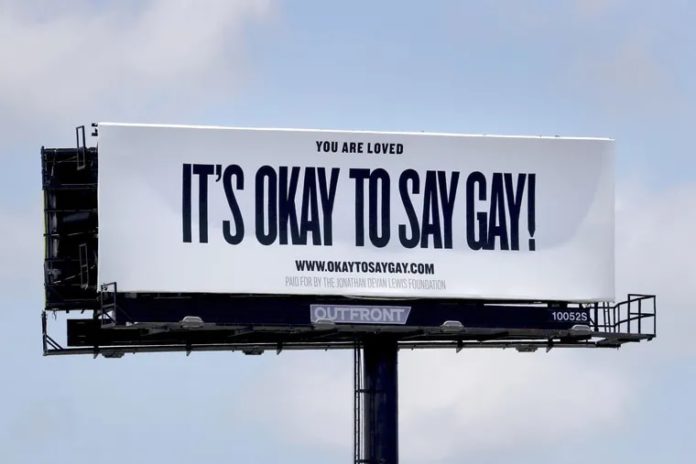/cloudfront-us-east-1.images.arcpublishing.com/pmn/XKJPPIV5CJFJRJBDQCUMRE7FB4.jpg)
As an LGBTQ student in the William Penn School District in Delaware County, I felt both accepted and welcome. Not once were my peers or I treated differently; on the contrary, we were supported.
The district stood behind us, even when two protesters stood outside the high school in 2019 and waved signs that read: “Being gay is a sin.” I remember walking down the school’s steps to catch my bus home when I saw their signs and heard the cruelty of their words. Although I had heard this hatred before, I never expected to hear it at school.
A few days later, at a school board meeting, our guidance counselor, Ms. Brown, said in the aftermath of this event, “I’ve never heard so many of my kids say that they felt unsafe.” She added that at school, “We teach our kids love, and we teach our kids acceptance.” Other administrators, including then-Superintendent Jane Harbert, also showed their support for the LGBTQ community that day. She explained that students here feel comfortable expressing their true authentic selves. Hearing their shared support made me feel seen and heard in a way that I believe every parent wants their child to feel at school.
Pennsylvania Senate Bill 1278, the “Don’t Say Gay” bill, would have changed that entirely. It would have silenced those supportive voices. As a former student, that breaks my heart.
“As a former student, that breaks my heart.”
Senate Bill 1278 was approved by the Pennsylvania Senate on June 29. It now awaits a vote in the House. The bill, titled “Empowering Families in Education,” seeks to disempower students, teachers, and staff, disguising itself behind a neutrality that isn’t neutral at all. The bill states: “School personnel must remain neutral and use existing, familiar and well-defined constitutional framework applicable to religious beliefs in public schools for matters relating to sexual orientation and gender identity to prevent government endorsement of beliefs about sexual orientation and gender identity in public schools.”
The bill is dangerous and misguided.
True “neutrality” would be accepting that students live in a wide variety of families: a mom and dad, a grandparent as a caregiver, or even two moms. The “neutrality” mandated by this bill instead would leave LGBTQ students vulnerable to harassment and bullying, more than they are already. Teachers would become bystanders or worse complicit in the bullying that LGBTQ students face in school.
Whether that bullying is from other students or protesters, schools are obligated to protect all their students.
But how can they when this bill would prohibit the acknowledgment of queer students by falsely equating sexuality and gender identity to ideas and beliefs? The bill would order schools to ignore who queer students are because matters of sexuality and gender must utilize the same “constitutional framework applicable to religious beliefs in public schools.” But sexuality and gender are not religious beliefs and therefore do not require the same provisions as the separation of church and state. Sexuality and gender identity are not choices made.
» READ MORE: 2022 is ‘poised to become the year of the most anti-LGBTQ legislation’ in the United States | Opinion
To make matters worse, the bill would also forbid classroom instruction about sexual orientation and gender identity for students in grades pre-K through fifth, saying it is not age-appropriate. However, children begin understanding sexual orientation and gender identity as early as age 3. Many have questions that they may feel most comfortable asking their teachers or mentors. Such conversations are in fact age-appropriate because they teach love and acceptance.
I encourage students to use your voices. Share how this bill would impact your school experience. If you agree that this is harmful, call your legislator to oppose this vitriolic proposal.
Pennsylvania legislators should be working to protect and support all students. It is shameful that instead, they have found another way to attack an already marginalized group. I fear the attacks won’t stop here.
Nasharie Stewart is a rising sophomore at Johns Hopkins University, where she is studying political science and psychology. She is a summer intern at the Education Law Center.








